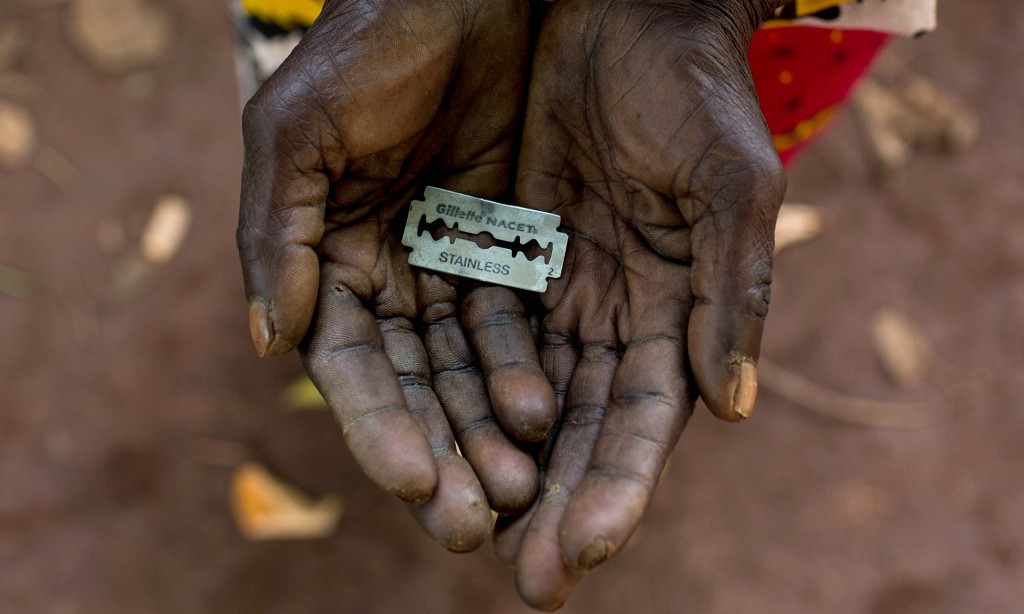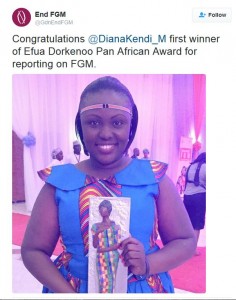The first pan African award for reportage on female genital mutilation was awarded in Abuja, Nigeria, on Tuesday for a powerful film made by two Kenyan journalists about five young women who sought to flee mutilation in western Kenya.
I’m a survivor of female genital cutting and I’m speaking out – as others must too
Maryum Saifee
The winning team – Diana Kendi, 29 and Jane Gatwiri, 24 who worked for the Nation media group – made the nine-minute film for the UNFPA/Guardian award despite hostility from some local people. “The villages elders even refused to speak to us because we were uncut women”, Kendi said.
The film features five survivors whose faces were covered because they did not want to be identified. The five girls had fled to a rescue centre to avoid being cut – but two had already been mutilated, Kendi said.
“I’ve known girls in some communities who have died because of this – that’s why I am doing this, to stop it”, she said.
Female genital mutilation was banned in Kenya in 2011 but there have been only two prosecutions, with one of those prosecuted serving a seven-year prison sentence.
FGM is the mutilation of the female genitalia – it can range from the cutting off of the clitoris with a razor blade, scissors to the use of a traditional “cutting” knife to remove the entire labia and the sewing of the vagina, leaving only a small hole to pass urine. It is estimated that at least 200 million girls and women alive in the world today have been cut.
The practice predates all religions, with one of the earliest recorded incidents being in the tombs of the pharaohs’ princesses.
Kendi has been a journalist for five years and started reporting on the subject because of the stories she heard from survivors. “It was a woman who was mutilated while she was giving birth in a public hospital, because in her village they believe that women who have not been mutilated are prostitutes. I was so shocked that I decided this was something I am going to highlight” said Kendi.
The Efua Dorkenoo award for reportage on FGM, sponsored by the UNFPA, was announced by UN secretary general, Ban Ki Moon, at the launch of the Guardian Global Media Campaign in Nairobi in 2014 and the ceremony was part of the formal launch of the UNFPA/Unicef joint campaign against the practice in Nigeria this week.
More than 300 dignitaries and politicians attended the event, hosted in the presidential palace. Nigeria banned FGM in May 2015 and to date there have been no prosecutions. However the choice of venue and attendance of government ministers at the first national conference is thought to signal a growing movement against the practices.
The award, which attracted almost 100 submissions from across Africa, was named after Efua Dorkenoo, an early global pioneer against FGM. Based in the UK, she worked for more than 30 years across the world on her campaign and founded Forward UK. She died in October 2014.
The winner was awarded with a handmade sculpture by Nigerian artist Godfrey Williams-Okorodus who has dedicated a large part of his work to campaigning against FGM.
In 2015, Nigeria, because of its population of more than 175 million has reportedly the biggest number of cases of FGM in the world, accounting for about 15% of all women cut in the world.
Submissions for the next Efua Dorkenoo award will open in September.


